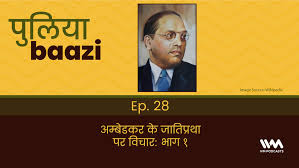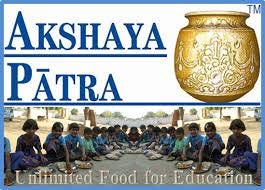Happy Republic Day to our Indian readers.
Today marks 70 years of the day that the people of Independent India adopted their constitution. The largest democracy in the world set the strictest standards of self governance on itself in the form of a document that they pledged to live by.
By the time you read this, there’s a good chance that the President of India would have unfurled the national flag from Rajpath in New Delhi and the Prime Minister would have delivered an impressive speech that will be talked about for days to come.
The procession of tableaus depicting each state’s glory and the strength of the armed forces would also have passed and the highlights of the show would be playing across social and main stream media.
Today is certainly a day to bask in the glory of the successful experiment called the Republic of India.
But as much as this experiment has been successful, it has also been riddled with numerous failures and challenges that are worth reflecting on. And we strongly believe that there is always a lot more to learn from failure than from success. We ignore our flaws at our own peril.
So for us as Indians, and also as citizens of the world, its imperative that we contemplate on where a democracy as vibrant and diverse as India has failed its people, the very entity it was conjured up to serve.
Yes, we believe a nation is for the people and not the other way round.
Please Note: If you are a die-hard Indian patriot, uncomfortable with the fallibility of this great nation, then its best you stop reading right here. You can just turn on the TV, or scroll through your social feeds, or wait for the next Akshay Kumar movie to massage your nationalistic ego and pride, this newsletter will not do that.
Thanks.
We don’t intend to hurt your feelings but we also want to exercise our right to free speech and kindle a healthy discussion around how can this nation really become great. If that is something that peeks your interest, then come along for the ride.
Lets Go.
Now that the trolls have left, there’s just 1 thing I want to say before starting today’s letter. The biggest achievement of this nation is perhaps the very fact that it exists today, and it has survived and thrived for more than 70 years.
When we achieved independence from the Brits in 1947 very few global leaders actually gave us a chance of surviving for more than a couple of decades. Everyone thought we would come running for Britain’s help sooner rather than later.
The fact that we have managed to unite a fragmented sub-continent like India, and are holding our own at the world stage is in itself a major achievement worth feeling proud about. And most global leaders today feel that India is certainly going to play a major part in the world economy in the coming decades.
The 21st century is in all probability India’s century. And if you’re an Indian and already have the resources to be reading this post right here right now, then you also are going to play your part in the growth story of India. You can pat yourself on the back for that.
But I digress! As I said before, there’s more to learn from humility than pride. So lets stay humble and learn.
#1
The Story of creation of our constitution
Its best to begin from the very beginning. Today is the 70th anniversary of the day that the Indian constitution came into effect. So it would be interesting to know how the constitution was written. It took close to 3 years to take form. 3 years of numerous discussions and debates by the members of the constituent assemble of India- A sort of an indirectly elected parliament.
The debates are available in the form of a book, or can be read freely on the web as well. But best is a 10 part web series commissioned by Rajya Sabha TV in 2014 called Samvidhan.
Its an enlightening series. The debates from back then seem hauntingly relevant even today. The issues that the members were grappling with then resonate with the issues we face as a country in present times.
Right from the citizenship debates, or the issues around state-autonomy and federalism, or the matter of adopting a language for the country or taking care of the repressed sections of society. All issues were being discussed behind closed doors by an assembly of intellectuals while the reality of partition, and the resulting violence was going on outside the doors.
These are deeply enriching discussions that can help one form an idea of India for oneself. If you are a typical millenial Indian, you perhaps don’t have that sense of patriotism that you see the elder generations portraying. This series really instills that sense of Indianness, that uniqueness that one feels belonging to this sub-continent.
It also gives one a direction about how to think about building a nation. The discussions range from something as basic as picking the flag and the language of the country, to something as deep as deciding the fundamental rights of a citizen of India. Very rarely does one get an opportunity to peep into the hearts and minds of the framers of a nation. This is one such opportunity.
And its full of excellent speeches and performances by some of the finest actors of the country.
This fifteen minute speech by Dr. B.R Ambedkar from the last episode beautifully sums up the efforts of the constituent assembly and also sets up the magnanimity of the challenges that this new born nation will face.
Samvidhaan
(10 parts of 50 mins each)
#2
CAA-NRC ruckus
If you have not been living under a rock for the last couple of months then you have some vague idea about the recent amendments to the Citizenship Act (1955) by the government of India, and the ensuing protests that have engulfed the country since.
There are multiple layers to this problem.
Illegal immigration has been a problem in India historically because of its porous borders. Especially in the border states like West-Bengal, Punjab, and most of all Assam.
There have been swathes of migrations to India at different periods in history, right from the partition in 1947 to the the 1971 war and the subsequent creation of Bangladesh. Religiously persecuted minorities have fled to India for protection.
Plus there is a steady inflow of migrants from neighbouring countries regularly for prosperity and a livelihood.
India does need strong legislation to deal with different types of migrants and being the largest country in South Asia it makes geo-political sense for India to give refuge to persecuted minorities from its neighbouring countries.
A major part of the current conflict is because as per the latest amendments India will provide citizenship to religiously persecuted immigrants of all religions except Islam. Such religious discrimination goes against the very ethos of our constitution and the “Idea” of India that the youth today believes in.
The concerns are doubled with the fear of a proposed National Register of Indian Citizens. A large scale massive exercise to register all legal Indian citizens and to hold all illegal migrants in ‘detention camps’.
Such an exercise was recently carried out in Assam which rendered close to 2 million people in limbo. The strangest thing is that the demand in Assam was not based on religious lines but on ethnic ones. After the 1971 war there was a huge inflow of Bangladeshi immigrants into Assam which raised fears of local Assamese people becoming a minority in their own land.
The rules and timelines of such an NRC exercise at the national level have not been clarified by the government yet. But the high-handedness with which the government is dealing with the fears of the people certainly does not give any confidence to the average citizen, especially the religious minorities of the country.
This podcast from Puliyabaazi does an excellent job of explaining the background of the issues and political motives of the government behind this move.
Check it out—
Puliyabaazi Hindi Podcast
Ep. 53: सीएए और एनआरसी: इंसानों का डिमॉनेटाईसेशन
(62 mins)
One interesting question to ask amidst the current chaos is how big a problem is illegal immigration for India. With a shrinking economy and an ongoing jobs crisis in the country, should immigration really be our top priority?
In this article for LiveMint, Prof. Chinmay Tumbe argues that as per our own census numbers, the problem of immigration has been sorting itself out over the decades, and its surely not as great as its being made out to be.
This is a data centric story which will help everyone get a perspective on the problem.
India is not being overrun by immigrants
(9 mins)
#3
Hidden Business Of Democracy
What would you do if a INR 1000 crore civil defamation suit was filed against you? Interestingly, what would you have to do to deserve such a lawsuit?
Journalist Josy Joseph wrote a book in 2016 titled “A Feast of Vultures: The hidden business of democracy in India”
Its a brilliant piece of investigative journalism that unravels the depths to which corruption has entered our society. If you’re an average citizen you have dealt with corruption on a small scale in some government organisation at some point in time.
We inherently know this, that this country runs on corruption, but fail to imagine just how grave the problem is. This book does an excellent job of showing the mirror to our society and bring out the ugly details of a problem we all superficially acknowledge.
From the remotest village in Bihar to the most lavish home in Mumbai, the tentacles of corruption have enveloped Indian society completely. The books is filled with stories of corporate greed, malice and even murder in some cases.
At the heart of the book are three chapters around the aviation scandal of the early nineties. The fall of East West Airlines and the rise of Jet Airways.
Those are also the chapters that lead Jet Airways and their founder Naresh Goyal to file a 1000 Crore civil defamation lawsuit against Mr Joseph.
Its a tragedy of a democracy that it gives corporates the power to file defamation cases against journalists for their reportage. This renders the 4th estate emasculated and grovelling at the feet of those with power. What role does a defamation law play in a democracy that encourages free speech is a discussion best parked for some other day. (Side note: India ranks 140 out of 180 countries in World Press Freedom Index.)
This can only lead to the proliferation of lapdog journalists that we see on the daily news these days. And no wonder on Mr Modi’s last visit to the US, Mr Trump asked him “Where do you find such reporters?”
The courage and skill that Josy Joseph’s book is filled with, is worthy of ever rupee and minute that you will spend on it. Get it before its banned by the regime —
A Feast of Vultures
(256 Pages)
#4
Matters of Caste
The people can blame the CAA-NRC ruckus on the present government, they in turn can blame the state of the economy on the opposition, or the first PM Mr Nehru, but there is one problem in Indian society that all of us will have to take collective responsibility of.
We cannot even blame the Brits for this one, or even the Mughals. The problem is of course one of the most deep rooted social evils that we deal with day in and day out, I am talking about the 3000 year old caste system in India.
And if you don’t deal with this evil everyday then perhaps you are an upper caste Hindu. There is a saying in UP — “If you don’t know your caste, then you must be a Brahmin”. Not knowing your caste or not facing discrimination because of it is a privilege in this country.
And this evil cuts across religious lines as well, or even class lines. The ugly truth that perpetuates this problem with every generation is the fact that every caste takes pride in being better than the castes lower than itself. They enjoy the social status this hierarchy gives them.
Post independence, the well meaning intervention of caste based reservations in government run institutes and offices has only aggravated the problem. The uglier truth that perpetuates the caste divide with every generation is the fact that every caste claims oppression by higher castes and demands reservations based on it. They enjoy the economic benefits that this hierarchy gives them.
This is a problem even the great BR Ambedkar couldn’t have thought of.
But we can still look to him to find a solution to this problem. He was invited to preside over a convention of the ‘Jat Pat Todak Mandal’ to speak on the solution to the caste problem back in 1936. He sent his speech to the organisers a few days before the event at their insistence. The speech was so provocative that they had to cancel the event itself to stop Mr Ambdekar from speaking his mind from their platform.
Ambdekar later self published the speech as a book titled “Annihilation of Caste”. Its a seminal work on the roots of the caste system in India and describes the only solution that Ambedkar could foresee — Destruction of the system from those very roots.
Its a must read for every Indian citizen, its a short read with a big impact. If you are a devout Hindu then you’re perception of this religion is certainly going to change after reading this book. Check it out —
Annihilation of Caste
(107 Pages)
Pair the book with an excellent podcast from Puliyabaazi. Its the kind of modern commentary that is needed to appreciate an 8o year old book about a 3000 year old problem. Check it out —
Puliyabaazi: अम्बेडकर के जातिप्रथा पर विचार: भाग १
(45 mins)
#5
Be a Blessing
We are starting a new section here today at The Wisdom Project. We believe in the philosophy — “If you are blessed, be a blessing”. With that spirit in our hearts, every few weeks, we will try to showcase some avenues where our readers can become blessings for the under-privileged in our society. We hope our endorsement helps someone make a positive change in society. But if for some reason we are poor at our jobs then please don’t let our inefficiency form a negative impression of someone else’s honest hard work.
Today we want to talk about Akshaya Patra.
Almost all of India’s problems can be solved if its education problem is solved. And the government’s mid day meal scheme is a good initiative towards that end. It has done a decent job of increasing regular attendance in primary schools in India. Under-privileged children flock to the schools in lure of a healthy meal which is often hard to find at home.
Where the scheme falters is in the execution part. The day to day execution capabilities of many government schools are not up to the mark and they often fail to prepare and serve healthy food to all their students on a regular basis. This is where Akshaya Patra comes in.
It sets up large scale community kitchens and provides good healthy food to multiple schools in a region. The schools effectively outsource their kitchens to Akshaya Patra. The contributions it receives from people like us help it supplement the shortage of funds and run a well functioning not-for-profit organisation at a large scale.
We have visited their community kitchen in Vrindavan and are very impressed with their diligence and efficiency. We also try to make small contributions periodically to the organisation as best as we can. Rashmi Bansal’s book “God’s Own Kitchen” is an excellent account of how the organisation was founded and what challenges it faces in day to day operations.
You can find out more about them and contribute from their website :
#6
Signing off for the weekend here’s a quote worth pondering
However good a Constitution may be, if those who are implementing it are not good, it will prove to be bad.
However bad a Constitution may be, if those implementing it are good, it will prove to be good.
Dr. B.R Ambedkar
You heard it from the man himself. Its not about the constitution, its about the people following it. Think about it.
Tell us what you liked or disliked about today’s letter. We really appreciate all the responses that we get and are hungry for more. Hit reply and lets get talking.
Also, please do share pearls of wisdom that you find around the internet around your idea of India. We would love to feature them here.
This was Wisdom Letter #21. In case you want to revisit any of the previous 20 letters, checkout our entire archive.
And if you’re wondering why we are doing this project, what is the point of it? checkout the intro post, it might make some sense!
If you liked what you just read, hit the subscribe button below to receive this Wisdom Letter directly in your inbox next week. It will help you spend your Sundays wisely.
And if you are already a subscriber, please hit the heart icon at the bottom of this post to show us some love.
Wisdom is like love. It spreads when you share it with someone. Tell someone about this post and spread some wisdom :)
Ciao
Aditi & Ayush
Disclaimer:
None of the links that we share here are affiliate links. We don’t intend to make money off of your purchases of any books or products that we recommend. These are honest recommendations that have worked for us and we share them without any ulterior motives.




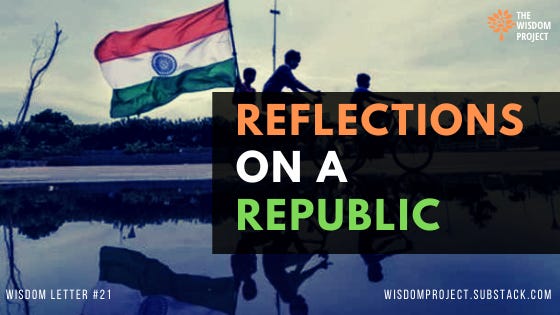
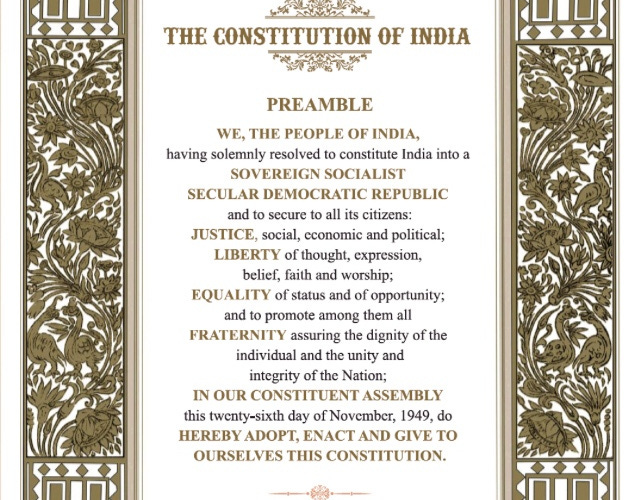
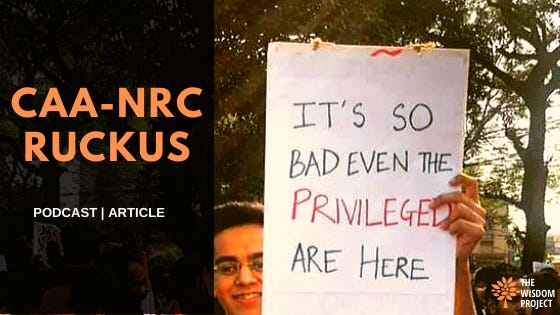
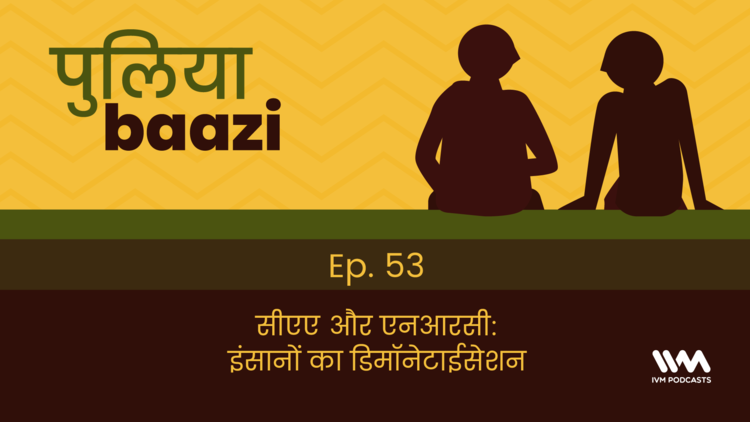

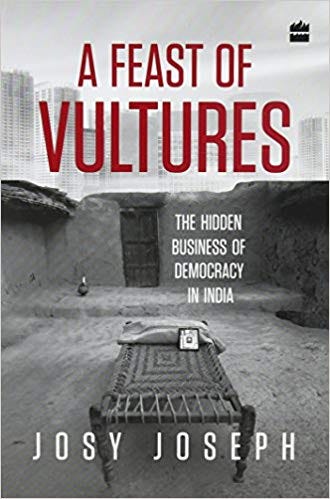

![ANNIHILATION OF CASTE by [AMBEDKAR, B R ] ANNIHILATION OF CASTE by [AMBEDKAR, B R ]](https://substackcdn.com/image/fetch/w_1456,c_limit,f_auto,q_auto:good,fl_progressive:steep/https%3A%2F%2Fbucketeer-e05bbc84-baa3-437e-9518-adb32be77984.s3.amazonaws.com%2Fpublic%2Fimages%2Fea6591e1-7a42-4c5e-8b9f-f441755c2fc5_314x500.jpeg)
